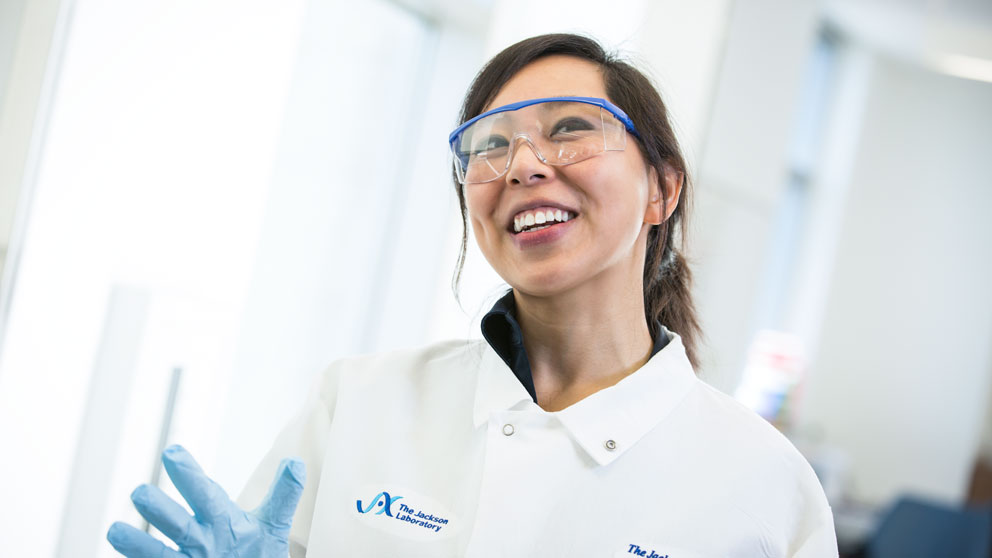
Research of skin microorganisms could lead to better therapies for skin and infectious diseases.
a Jackson Laboratory (JAX) assistant professor who explores the communities of microorganisms that live on the human skin, has received a special New Innovator Award of $2,835,000 from the National Institutes of Health (NIH) to explore how to develop engineered probiotic treatments for a variety of skin and infectious diseases.
New Innovator Awards, part of the NIH High-Risk, High-Reward Research program specially funded by the Office of the Director, support “exceptionally creative early-career investigators who propose innovative, high-impact projects,” according to the NIH website.
Oh’s work is aimed at developing a next generation of therapeutics for skin and infectious disease by harnessing the wide variety of bacteria, viruses, and fungi, collectively known as the Hidden in the skinJulia Oh probes the depths of human skin to characterize the microbial communities that contribute to health and disease.skin microbiome, that live on human skin.
“The skin microbiome has been shown to play an active and intimate role in shaping the health of skin,” Oh explains. “If we can better understand — and manipulate — the skin milieu, we could create new microbiome-based therapeutics that can effectively integrate into the skin ecosystem and stably and continuously remediate the skin.”
To date, she notes, probiotic treatments have had “little lasting success,” likely due to competition from other microbes, incompatibility in the skin, or being knocked out by the host’s immune system. Oh will use the new grant to better understand how potential probiotic strains integrate into an existing community of microorganisms, and whether probiotics can be engineered to improve their ability to integrate in order to serve as effective treatments.
In the process, Oh will develop and apply a predictive algorithm to data that have been collected on the dynamics of a wide variety of skin microbes. Ultimately, this algorithm will optimize a probiotic strain for an individual, skin site or disease state, based on a given microbial community and clinical data, and predict subsequent integration, efficacy and impact.
The results of her work would provide the deepest investigation to date into biological factors that underlie skin microbial interactions and provide new insights into factors that may limit a probiotic’s efficacy in the skin. Taken together, the impactful outcome of her proposed projects will change the landscape of how skin microbial therapeutics are developed.
The Jackson Laboratory is an independent, nonprofit biomedical research institution based in Bar Harbor, Maine, with a National Cancer Institute-designated Cancer Center, a facility in Sacramento, Calif., and a genomic medicine institute in Farmington, Conn. It employs 2,000 staff, and its mission is to discover precise genomic solutions for disease and empower the global biomedical community in the shared quest to improve human health.
National Institute of General Medical Sciences: Metagenomes to Therapeutics: Defining the Rules for Engineering the Skin Microbiome, grant number 1DP2GM126893-01